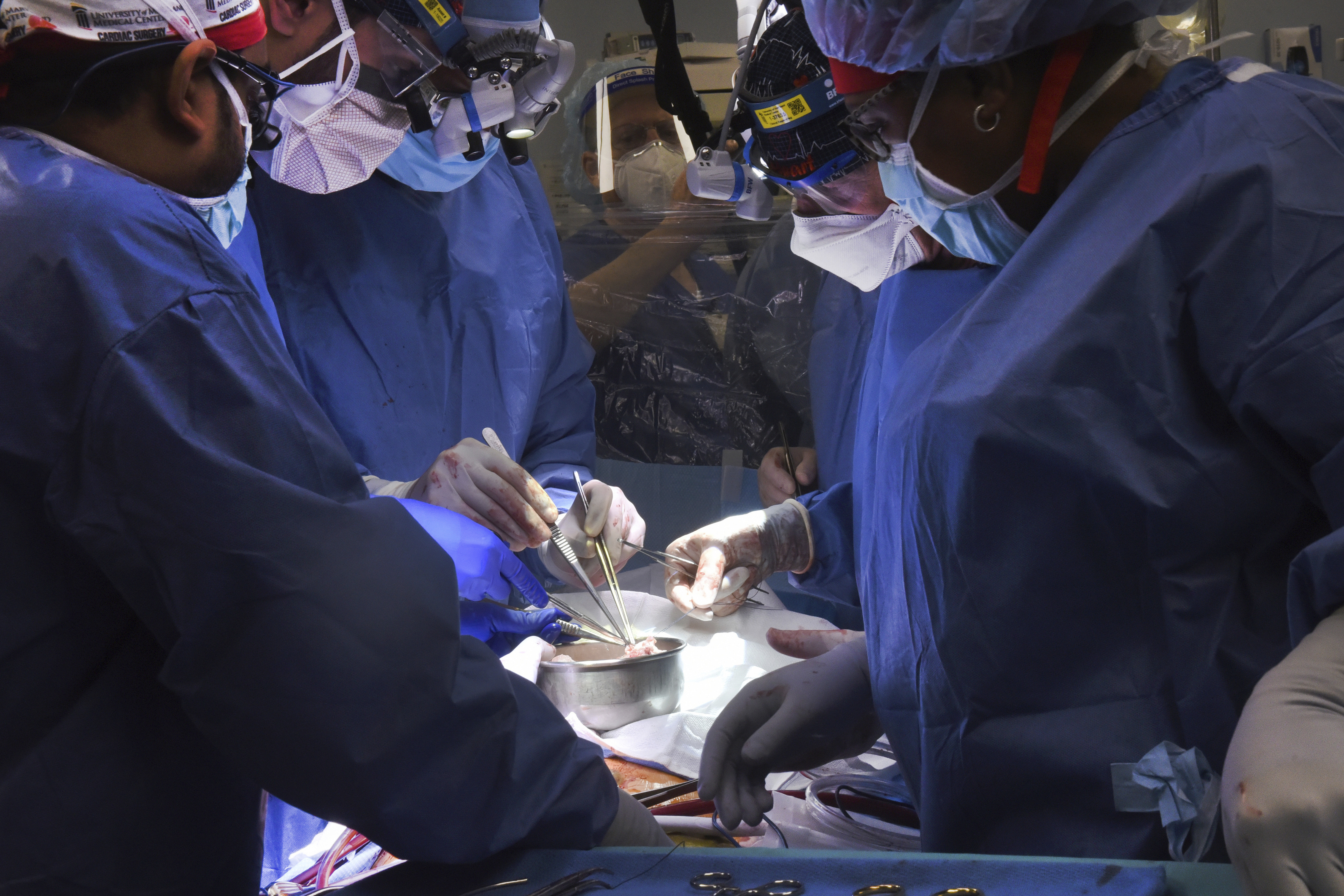A Maryland man is making slow but steady progress more than a month after getting a heart transplant from a genetically modified pig — a first-of-its-kind procedure that could revolutionize transplantation. News4’s Doreen Gentzler reports.
A Maryland man is making slow but steady progress more than a month after getting a heart transplant from a genetically modified pig.
The operation at the University of Maryland Medical Center was the first of its kind in the world and could help solve the organ shortage and save countless lives.
David Bennett, 57, spent weeks in the hospital near death with a heart condition that was so bad he wasn’t eligible for a traditional transplant or an artificial heart pump. He decided to take part in a human experiment unlike any other.
“He said to me two very important things,” Dr. Bartley Griffith said. “He said, ‘I don't want to die,’ and he said, ‘If I do, maybe you'll learn something to help others.’”
We've got the news you need to know to start your day. Sign up for the First & 4Most morning newsletter — delivered to your inbox daily. Sign up here.
Griffith performed the surgery, calling it a breakthrough that could revolutionize the field of transplantation.
“The fact that we could take a genetically engineered pig and put it into a human being and save their life is something that we dreamed about 25 years ago when I was a resident in the lab,” Dr. Christine Lau said.
More than 110,000 Americans are waiting for an organ transplant with 6,000 patients dying each year before getting one.
But using animal organs for transplants is controversial and risky. Doctors are monitoring Bennett for any signs of a potentially life-threatening immune response.
“The heart is contracting vigorously as it should,” Dr. Muhammad Mohiuddin. “It has shown no signs of rejection.”
The fact that we could take a genetically engineered pig and put it into a human being and save their life is something that we dreamed about 25 years ago.
Dr. Christine Lau
Doctors say Bennett’s new heart has performed beyond their expectations so far.
“My dad's single goal and hope is to go home,” David Bennett Jr. said.
“Not knowing where the science will take us, but at least there is this opportunity that my dad and the medical center has helped to facilitate,” he said.
Doctors at the University of Maryland Medical Center in Baltimore will continue to monitor Bennett over the next several months to make sure his body doesn’t reject the new heart.
They plan to publish their findings with the hope that other surgeons will replicate their work.
There has been some controversy following Bennett’s heart transplant because of his criminal past. He spent several years in prison after a jury found him guilty of battery for stabbing a man in Hagerstown in 1988.
Hospital officials say they make decisions on transplant eligibility based on a person’s medical needs and Bennett was a candidate for this medical experiment because he had no other options for survival.


